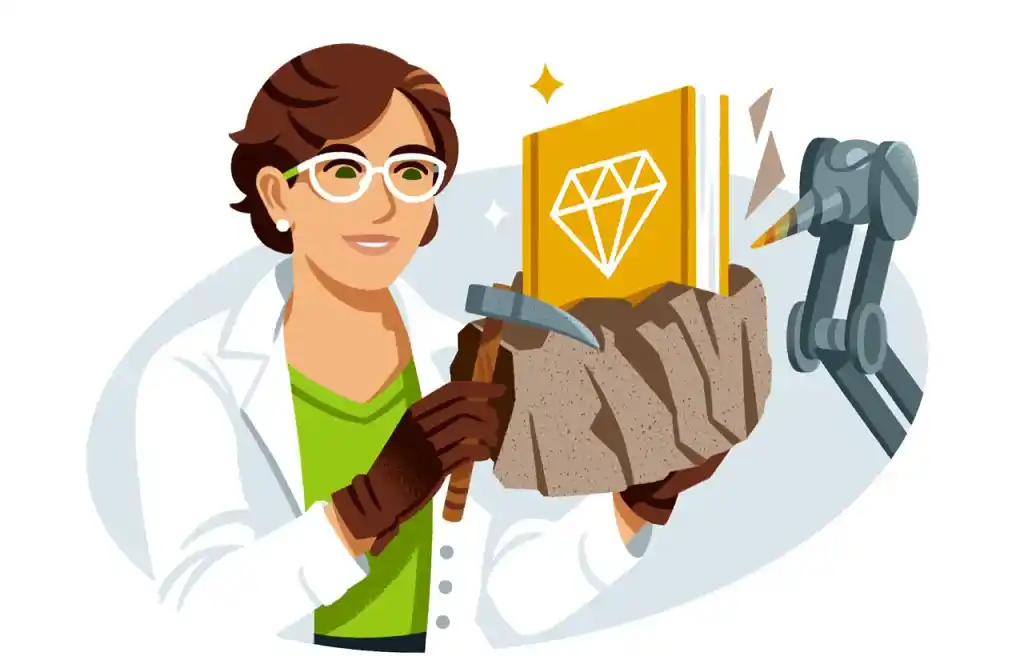Meet the developmental editors behind bestsellers
While finishing your manuscript, one editorial service is essential: developmental editing. Whether you plan to query or self-publish, a professional developmental editor can help ensure your manuscript fully develops its premise.
On Reedsy, meet developmental editors with years of experience as literary agents and Big 5 editors. They understand story arc, character development, and other craft essentials — and they know what readers in your genre expect and love.
Bryn D.
Available to hire
Former executive editor in publishing, specializing in romance and mystery. I give detailed but encouraging edits, and I help with querying!
Ian H.
Available to hire
Experienced and versatile Development Editor, PhD, working with respected Publishers in the fields of Technology and Chemistry.
Louise S.
Available to hire
Covering a range of subjects including entertainment, education, reference, media and the arts
Brent H.
Available to hire
Agent and editor with 19 years at Penguin Random House, editing narrative history, thrillers, mysteries, spy stories and horror.
Lottie H.
Available to hire
Editor and proofreader with 3+ years' experience at HarperCollins and an expert eye for detail! Keen on women's fiction and fantasy.
What is developmental editing?
Developmental editing is a phase in the book publishing process where editors work with authors to address “big picture” issues in their manuscripts, including structure, form, plot, and character. In the realm of nonfiction, a developmental editor can also help you streamline your argument in individual chapters and across the book. Across genres, developmental editing will bear your target audience in mind and assess your work in relation to industry standards and expectations.
Because of its focus on wider story elements, this type of editing normally won't address sentence-level errors such as punctuation and grammar typos. Only once your manuscript has been revised, reshaped, and developed will it be ready for a copy edit and proofread.
What does a developmental editor do?
A developmental editor works to strengthen a manuscript’s narrative arc by providing detailed feedback on major story elements, from structure to character development and beyond. Your editor will begin by carefully reading your manuscript to understand its storyline and major thematic concerns. As they read, they’ll make marginal comments, noting any specific passages that may need to be revised, expanded, or potentially cut.
After reading through the manuscript once, the editor may read all or parts of it again, reviewing their marginalia before writing an editorial letter that assesses its strengths and weaknesses. In this letter, your developmental editor will make specific suggestions about tackling revision. They may also ask you to reflect on key questions, the answers to which will help you sharpen your vision and revise with your ultimate goals in mind.[/faq]
How to choose a developmental editor
We handpick our editors for their industry experience: our editors have worked with authors like Suzanne Collins, Danielle Steel, and Emily St. John Mandel. No developmental editor on our marketplace is definitively better than the rest — each professional has a unique set of experiences, skills, and working styles that make them better suited to certain authors and projects.
Assemble your team
Request quotes from up to 5 professionals in your genre with a free Reedsy account.
Here are a few things to consider when searching for your editor.
- Shortlist editors based on their specialty genres. A developmental editor with ten bestselling memoirs to their name might not be the best person to tackle your paranormal romance novel.
- Browse their portfolio to get a sense of their experience. Do you prefer editors who have worked with famous authors? Or do you need someone who’s successfully worked with first-time authors?
- Determine what style of critique you respond best to. Some writers need editors who are positive and encouraging. Others prefer a more direct style of feedback. After you make a request, interested editors will provide sample edits — these can help you get a sense of their style.
Developmental editing is subjective, and each editor works a little differently, but the bottom line is that no writer works alone: books are collaborative creations, regardless of how you publish or how experienced you are.
Tips for working with a developmental editor
While most freelance developmental editors will do their best to accommodate a client’s needs, there are still things writers can do to get the most out of their editing experience.
- Be as flexible as possible. Don’t wait until the month before your launch date to hire an editor. If you do manage to find an editor who's ready to start immediately, they may raise their quote to account for the tight deadline.
- Fix your typos and grammar first. Basic spelling mistakes will distract even the most focused editors. If prospective editors discover that your manuscript is hard to read, many of them will also adjust their quotes to compensate. At the very least, pass your manuscript through spellcheck before hiring an editor.
- Make sure you’re both on the same page. Before your editor starts their developmental edit, you both need to agree on the direction that your book will take. The editor might later return with suggestions for where your manuscript could go — but if they don’t understand your initial vision, that’s a recipe for disaster.
An editor’s honest critical feedback can only be successful if an author is open to critique and revision. By doing your research and following a few simple tips, you can find a developmental editor who’s perfect for your project (at a price that fits your budget).
FAQs
How much does a developmental editor cost?
Should I get an editorial assessment first?
What is the difference between developmental editing and copy editing?



